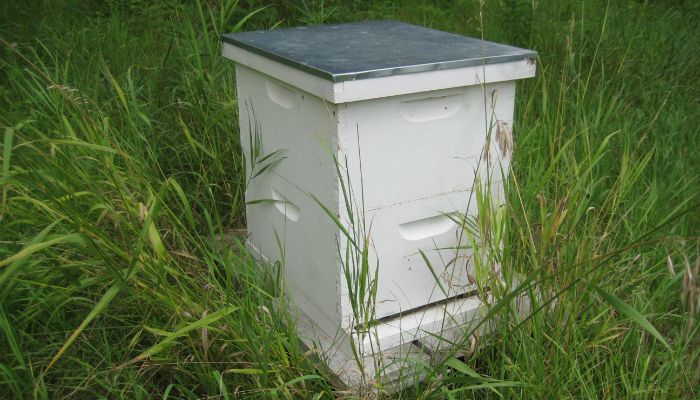Consequences of Declining Insect Populations

An abandoned bee box, another victim of colony collapse.
I subscribe to an assortment of nature-based magazines and newsletters, and recently there have been several stories in which people have noticed that they no longer need to clean squashed bugs off their car windshield, and it seems that there are simply fewer bugs around. I have been noticing this also. We live eight miles from town, and every week or so in summer we used to start getting yellow jackets hanging around the carport, feeding off the bugs on the front of the car. So I would then park in the yard and hose these bugs off. But last summer I think I only washed the car once, and so far this summer I haven’t had to do this at all. Also, when driving on the asphalt near our house in late summer, large grasshoppers used to leap up and “tink” against the grill several times per minute. Last summer I noticed that there were very few of these distinctive sounds. This summer? Only one so far (I’m now counting).
An insect dearth has consequences all the way up our food webs. For example, Doug Tallamy, author of Bringing Nature Home, points out that a pair of chickadees need to make about 9000 food flights to successfully raise a brood of chicks – and that food is insects. That’s just one example of possibly millions of different species that rely on insects as a food source. Insects are involved in almost every food web you can think of – they sustain small mammals, birds, lizards, and many aquatic organisms – which in turn become food for larger predators. Insects have another important role: cleanup crews in decomposition. If insect populations are fading, land sterilization becomes the new norm and that land is no longer able to sustain a diverse and healthy animal population.
What seems to be the cause for this decline?
At least one component is the newer neonicotinoid insecticides. These are sprayed in massive quantities on many industrial and agricultural landscapes – increasingly by aircraft – and they are incredibly efficient at killing insects. The choices a person makes in spraying their own yard and/or purchasing nursery stock either dosed with a systemic also become important to insect populations. This includes the use of that insecticide to get rid of the aphids on your roses or the coddling moths in your apple tree. Not only are you getting rid of insect populations considered to be unwanted in your landscape, but you are also unintentionally targeting the charismatic, beneficial insects we all want to support like bees and butterflies.
So keep in mind the importance of all insect populations the next time you have the urge to spray.
Tags: Doug Tallamy, insecticides, insects, Lon Drake, neonicotinoid, population decline

